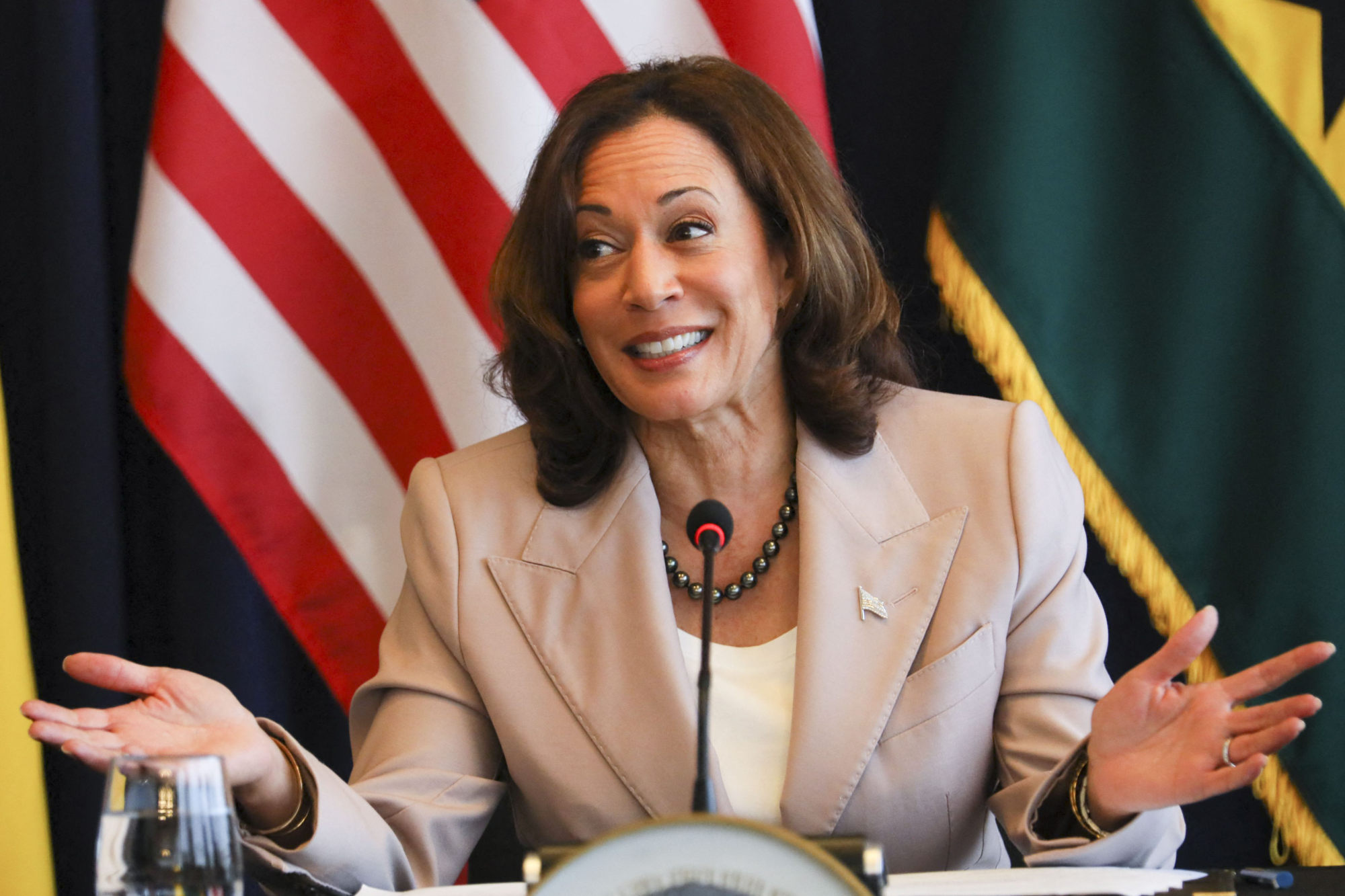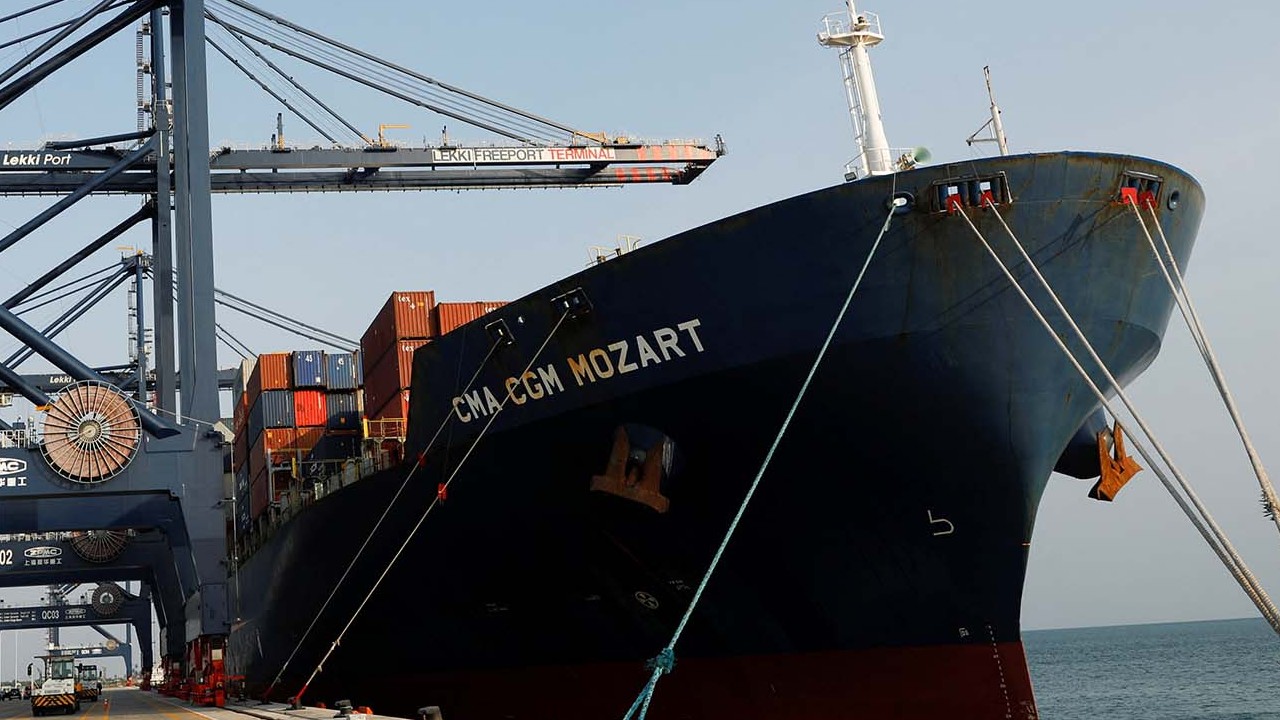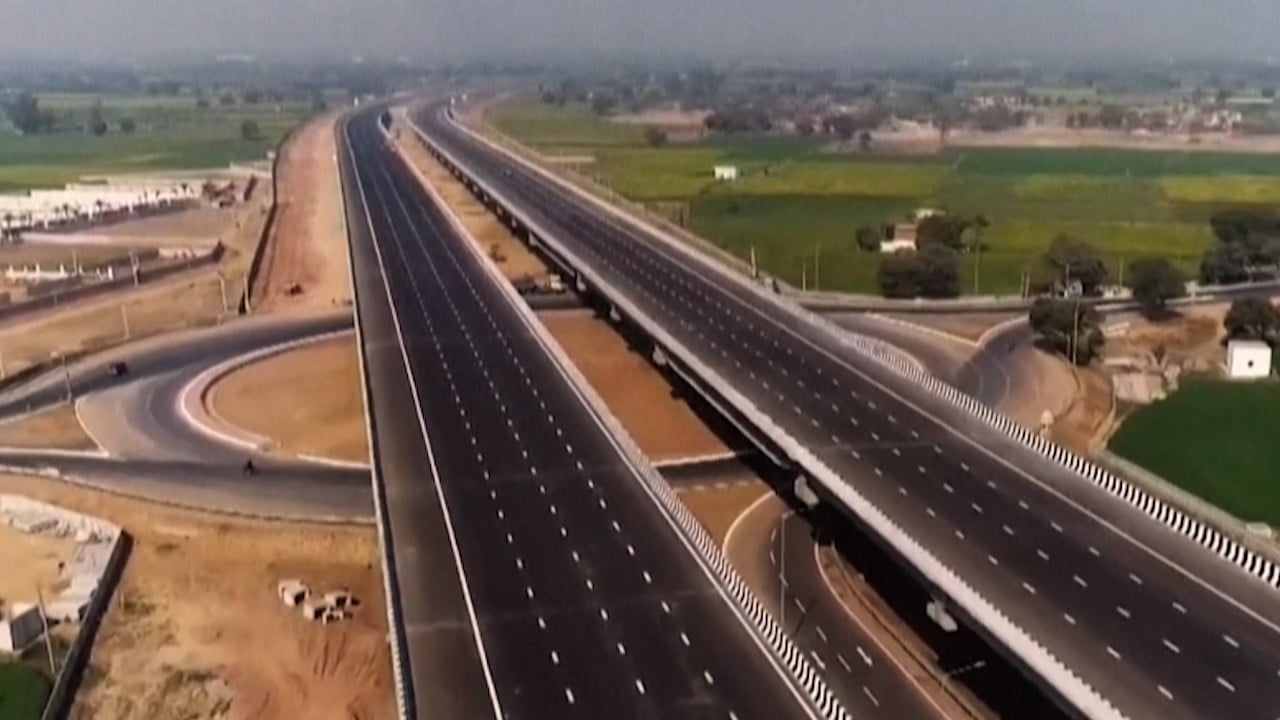
US Vice-President Kamala Harris is in Africa, so why does China keep coming up?
- Harris started her week-long trip saying Washington would invest millions of dollars in the continent
- She is the latest in a series of high-level American officials to visit this year, signalling US desire to reset relations
“The relationship between the United States and this continent and African leaders is an important one,” Harris said.
“There’s a historical basis for this relationship – not to mention as we look forward, as all governments should, and recognise the unachieved as-of-yet opportunities that exist going forward.”
But while Harris was focused on US-Africa ties, the media asked if the real reason for her trip was the American rivalry with China, a key financier for mega projects and a huge trading partner in the region.
Harris batted away the suggestion but the Ghanaian president indicated otherwise – and that there was little cause for concern.
“There may be an obsession in America about Chinese activity on the continent, but there is no such obsession here,” he said. “China is one of the many countries with whom Ghana is engaged in the world.”
President Joe Biden is set to visit later in the year, capping the greatest number of senior American officials to visit Africa in about a decade.

The attention is recognition that the US sees Africa as both an important US partner and as a geopolitical battleground, according to Cameron Hudson, a former US official who is now a senior associate at the Washington-based Centre for Strategic and International Studies’ Africa programme.
“Africa can no longer be ignored and must be seen as having inherent strategic value. That is a significant shift in the US approach to the region,” Hudson said.
But he said the US would not counter decades of Chinese diplomatic and financial investments within months, or even years.
“Unless and until we can show the kind of consistency that the Chinese have, Africans will have every right to remain sceptical of US intentions,” Hudson said.
Hudson said the geopolitical battles would be contested in areas affecting the US and China’s own economic security, such as having reliable access to critical minerals to power 21st century innovation and technology and controlling the flow of information, such as with 5G and undersea cables.
Hudson said another critical area of competition was simply for the hearts and minds of people in Africa, where China and the US presented very different development and political models.
“Whether Africans choose a less transparent, more authoritarian model or a more open, democratic model, will have huge implications for how and where both countries are able to engage on the continent. That in turn will have a substantial geopolitical impact beyond Africa,” Hudson said.
Why food is the new focus for China’s ties with Africa
China is the largest bilateral lender in Africa but the US has accused it of burdening African countries with unsustainable debt they cannot repay. In 2020, Zambia became the first African nation to default on foreign loans during the Covid-19 era. Lusaka is in discussions with China and other lenders for a debt restructuring deal.
Harris said the US would push for all bilateral creditors to provide debt reduction for countries such as Ghana, which defaulted on most of its US$29 billion external debt last year. “We must work together as the international community to ease the debt burden that is facing far too many countries,” Harris said.
Last month, Ghanaian Finance Minister Ken Ofori-Atta travelled to Beijing to discuss the restructuring of US$1.7 billion in debt with Chinese creditors.
“So far, had very positive and encouraging meetings in China,” Ofori-Atta said on March 24. “Looking forward to securing external assurances very soon.”
In addition, China is the continent’s largest trading partner, overtaking the US in 2009. Two-way trade rose by 11 per cent to US$282 billion last year, according to China’s General Administration of Customs. In the same year, US-Africa trade reached US$72.58 billion, according to the US Census Bureau.
It is a relationship Washington aims to improve.
The vice-president’s visit will also take her to Tanzania and Zambia – resource-rich countries where the US is eyeing critical minerals to fuel its future electric vehicles industry.
“In particular on this trip, I intend to do work that is focused on increasing investments here on the continent and facilitating economic growth and opportunity,” Harris said on Monday.
It comes on the back of Biden’s pledge at the US-Africa Leaders Summit in December to give US$55 billion in support to the continent over three years.
Tang Xiaoyang, chairman and a professor in the department of international relations at Tsinghua University, said the recent high-profile trips to Africa indicated that the US thought highly of Africa’s strategic importance now and wanted more influence over Africa.
But he said that because of the difference in economic structures, the US investments did not work in Africa.
“The US enterprises are concentrated in hi-tech and capital-intensive sectors, and have little capacity and experience of working in African markets, which are still primarily traditional agriculture and at an early stage of industrialisation,” he said.
“They can hardly find profitable areas to invest in Africa or trade with Africa, unless with heavy subsidies.”
Moritz Weigel, founding director of the China Africa Advisory in Germany, agreed that the senior US visits to Africa underlined the US’ new commitment to the continent, but America was playing catch-up on the continent.
“Whether we are seeing the start of a new era of US-Africa relations or not will only become clear in five to 10 years from now,” Weigel said.
China arms sales cement its economic and security ties in Africa: study
Gyude Moore, a senior policy fellow at the Washington-based Centre for Global Development and a former public works minister in Liberia, said Harris’s trip was the fourth high-level US visit this year and “the Biden administration is following up on its promise to treat Africa as a valuable partner”.
“And there are still a few more – including the president’s – on the cards for this year. I think it is an indication of the priority the administration assigns to the continent,” Moore said.
He said that, as found by the Afrobarometer survey firm, African perception of the United States remained high. Moore said these visits were not the basis of that perception, but they definitely helped shore up American influence there.
“I think in the long term, each partner will have different competences that endear them to African audiences. The size of the continent and the scale of its needs make it difficult for any one partner to monopolise the relationship with Africa,” he said.



